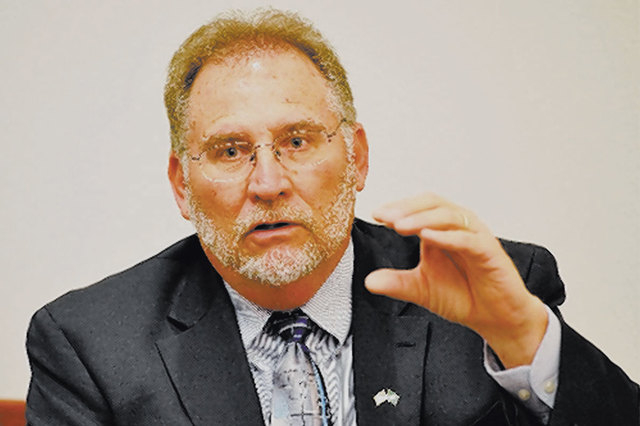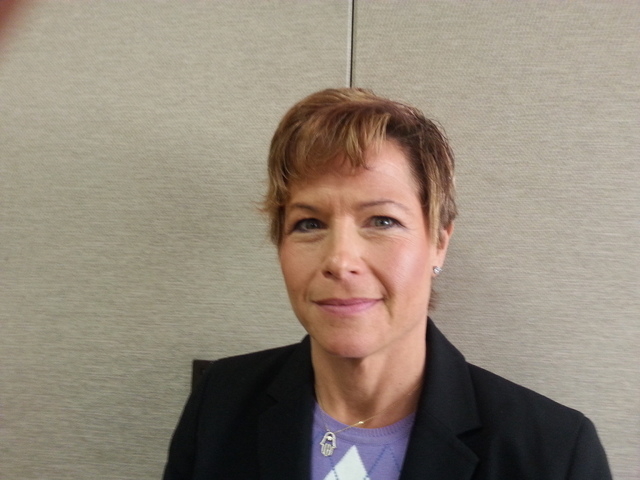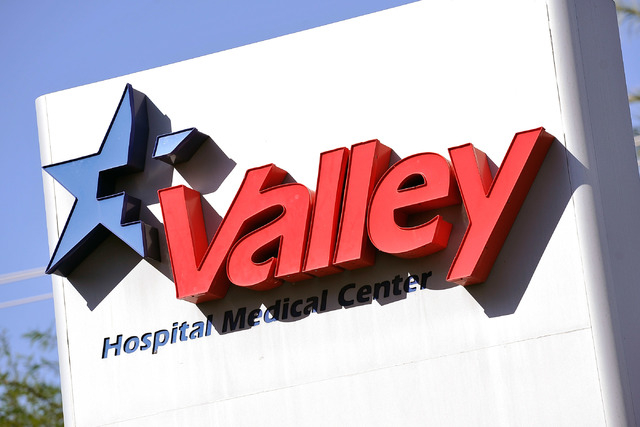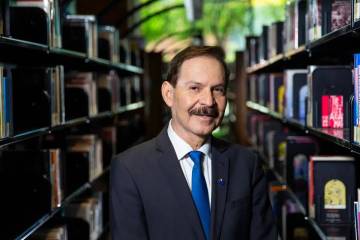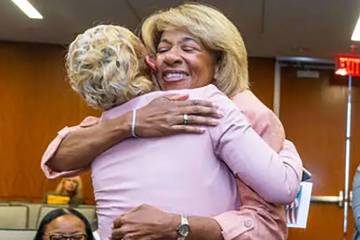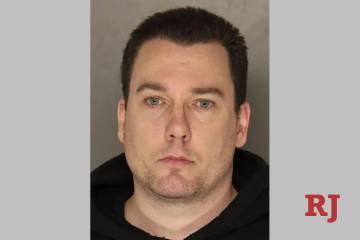Nevada panel meeting again to address mental health needs
Nevada government’s response to the state’s mental health system crisis resulted in improvements this year, but there’s more work to be done.
Gov. Brian Sandoval’s Behavioral Health and Wellness Council will meet for the last time this year at 9 a.m. Tuesday at the Sawyer Building, 555 E. Washington Ave. Its second report is due to Sandoval by Dec. 31. The council will continue its work next year.
“We got a lot done,” Mike Willden, chief of staff for Sandoval’s office, said on Thursday, adding that progress needs to continue.
Sandoval a year ago signed an executive order appointing the council to provide short-term and long-term recommendations to improve the state’s mental health system.
On Tuesday, the council will hear an update from Dr. Tracey Green, the state’s chief medical officer, on mental health services. It also will hear a presentation on regional governance of mental health services and will discuss and draft possible recommendations for its next report.
Sandoval quickly took action on some of the recommendations that were included in the council’s first report at the end of May at a cost of about $3.5 million.
“We’ll need to see what the report says,” Willden said of whether Sandoval will take similar action with the second report.
This year, 14 beds were added to the Las Vegas WestCare triage center, a mobile outreach safety team was launched, a mobile crisis team for children in Southern Nevada and Northern Nevada was expanded. The state also received approval from federal officials to increase the daily psychiatric reimbursement rate from $460 a day to $944 a day, which will result in more beds for the mentally ill.
Valley Hospital Medical Center hopes to open 48 psychiatric beds later this month.
Mental health courts also saw an increase in funding, among other improvements.
Council Chairman Joel Dvoskin said he was blessed for having a team of cooperative, intelligent and practical people to help push improvements forward.
“I’m very proud of the work that we’ve done in a very short period of time,” he said.
The council’s next report will be more of a status report on the actions that have already been taken. It will also include a few more recommendations and some clarifications for previous recommendations, Dvoskin said.
There’s been a discussion around regional governance of mental health services, but Dvoskin said a recommendation on that issue is not likely to be included in the next report.
“It’s such a big decision,” he said. “We want to get it right.”
Willden agreed.
“There will be more meetings required for this governance issue,” he said. “That won’t take one meeting.”
The council will begin to meet again next year after the 2015 legislative session, Willden said.
Some of the council’s recommendations will go through the legislative process, such as changes to the Legal 2000s, which is when people who are considered to be a possible danger to themselves or others can be held for up to 72 hours.
Having appropriate mental health professionals in the state’s public schools might also go before state lawmakers.
“The Legislature has a lot of difficult decisions to make. A lot of competing priorities,” Dvoskin said. “But I think there will be good support for mental health.”
The other issues the council will tackle next year include mental health among children and the elderly and mental health in the state’s correctional facilities. It will also continue to explore the governance, workforce and psychiatric crisis issues, Dvoskin said.
“My understanding is that the council will continue indefinitely as long as (Sandoval) is in office,” he said.
Ronald Lawrence, executive director of the Community Counseling Center, said the center offers substance abuse and mental health services. It is always busy and has waiting lists.
On Friday, the center launched the Nellie Bly Leadership Society, named after a journalist and mental health advocate. Lawrence said the society was created to raise funding for the agency to continue to offer and expand mental health services to meet the community’s needs.
“Mental health treatment has such great outcomes. First of all, we keep families together and functional, we decrease the amount of violence and increase safety in our community,” he said. “It all leads to healthier communities.”
Contact Yesenia Amaro at yamaro@reviewjournal.com or 702-383-0440. Find her on Twitter: @YeseniaAmaro.




